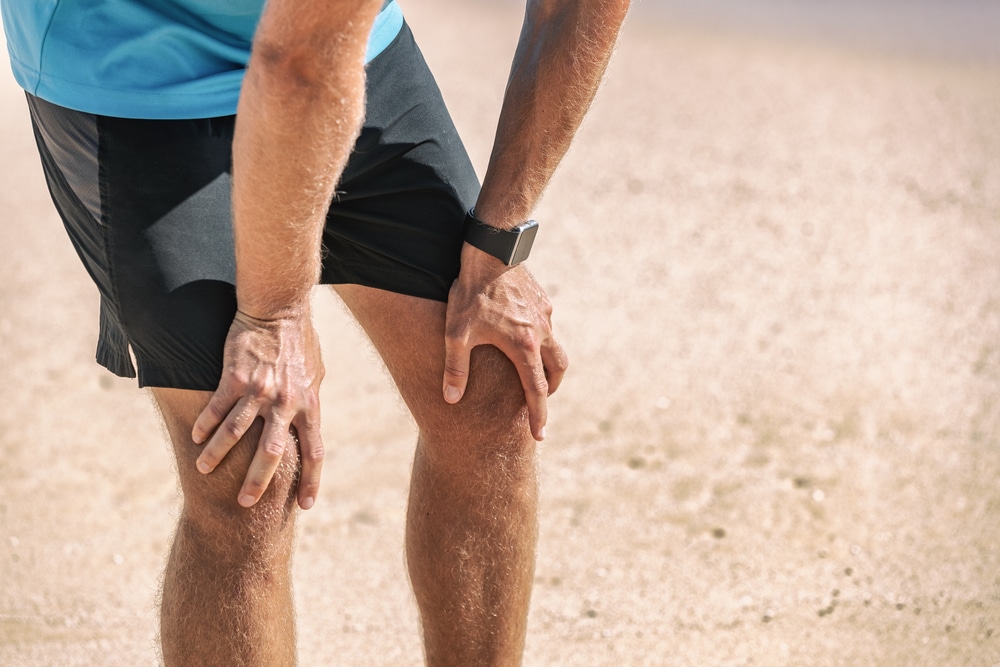There are a number of factors that can contribute to joint pain, both in athletes and others, and poor hydration levels are definitely on this list. Dehydration can have a direct connection to joint pain in many cases, and can even be a contributor to significant needs like joint replacement surgery or related procedures.
At The Orthopaedic Center, we offer a number of sports medicine and related services aimed at limiting joint pain and improving comfort, from hip and knee doctor services to shoulder, back and other bodily areas as well. For some of our patients, improvements in hydration can show major benefits for joint pain and related concerns. Here are some of the basics on how your body uses water, why your joints need proper hydration to function correctly, the risks of dehydration on the joints, and what you can do to maintain hydration and avoid these concerns.
How Your Body Uses Water
Before we get into the specifics of hydration and its impact on joint health, let’s first discuss how your body uses water. Water is essential for almost every function within the body, from digestion to waste removal and much more. It helps regulate blood flow, body temperature and other key bodily processes as well.
When it comes to hydration, water plays a crucial role in lubricating our joints. The cartilage within our joints is made up of mostly water, and this hydration allows for smooth movement and cushioning between bones. Without enough water, these joints can become inflamed and painful.
Why Joints Need Proper Hydration
As mentioned, proper hydration is necessary for the lubrication of joints. When there isn’t enough fluid in the body to maintain this lubrication, the joints can become stiff and painful. This is especially true for athletes, who put significant strain on their joints during high-intensity activities.
In addition to lubrication, proper hydration also helps with shock absorption in the joints. During physical activity, our joints act as shock absorbers to protect bones from impact. Without enough water, this cushioning effect is reduced and can result in increased pain and discomfort.
The Risks of Dehydration on Joints
Dehydration poses several risks to the joints, including an increased risk of injury and long-term damage. Without proper hydration, the cartilage between bones can become worn down, leading to joint pain and even conditions like osteoarthritis. In severe cases, dehydration can even lead to the need for joint replacement surgery.
Causes of Dehydration
There are a wide range of causes of dehydration, some of which are based on behavior and some of which may involve genetics, illness or other less controllable concerns. Some examples of each include:
- Overexertion: Athletes or other individuals who engage in high-intensity physical activity are at risk of dehydration.
- Illness: Certain illnesses such as diarrhea or vomiting can result in fluid loss and dehydration.
- Medications: Some medications, such as diuretics, can cause increased urination and fluid loss.
- Genetics: Some individuals may have a genetic predisposition to dehydration. Those with diabetes, for instance, may experience increased thirst and urination.
- Extreme heat: Hot weather or activities in hot environments can lead to excessive sweating and dehydration.
Knowing the Symptoms
Whether you’re a serious athlete or just someone looking to maintain good joint health, it’s important to know the symptoms of dehydration. These may include dry mouth, thirst, fatigue, headaches, dizziness and dark-colored urine. If you experience these symptoms, it’s crucial to rehydrate immediately and seek medical attention if necessary.
In particular, if you notice any joint pain or discomfort during physical activity, it’s important to listen to your body and hydrate regularly. Ignoring signs of dehydration can lead to further joint damage and potential long-term consequences.
Maintaining Proper Hydration
To maintain proper hydration levels, it’s recommended to drink at least 8-10 glasses of water per day. Increase your intake during physical activity and in hot weather conditions. You can also incorporate hydrating fruits and vegetables into your diet, such as watermelon or cucumber.
It’s also important to listen to your body and drink water when you feel thirsty. Don’t wait until you are dehydrated to start drinking water.
Proper hydration is crucial for joint health and overall well-being. It’s important for athletes and non-athletes alike to be aware of the risks of dehydration and take necessary steps to maintain hydration levels. At The Orthopaedic Center, we are dedicated to helping our patients achieve optimal joint health and can provide personalized recommendations for hydration and other practices to improve joint function. Contact us today for more information about any of our programs and services for patients around Tulsa.
